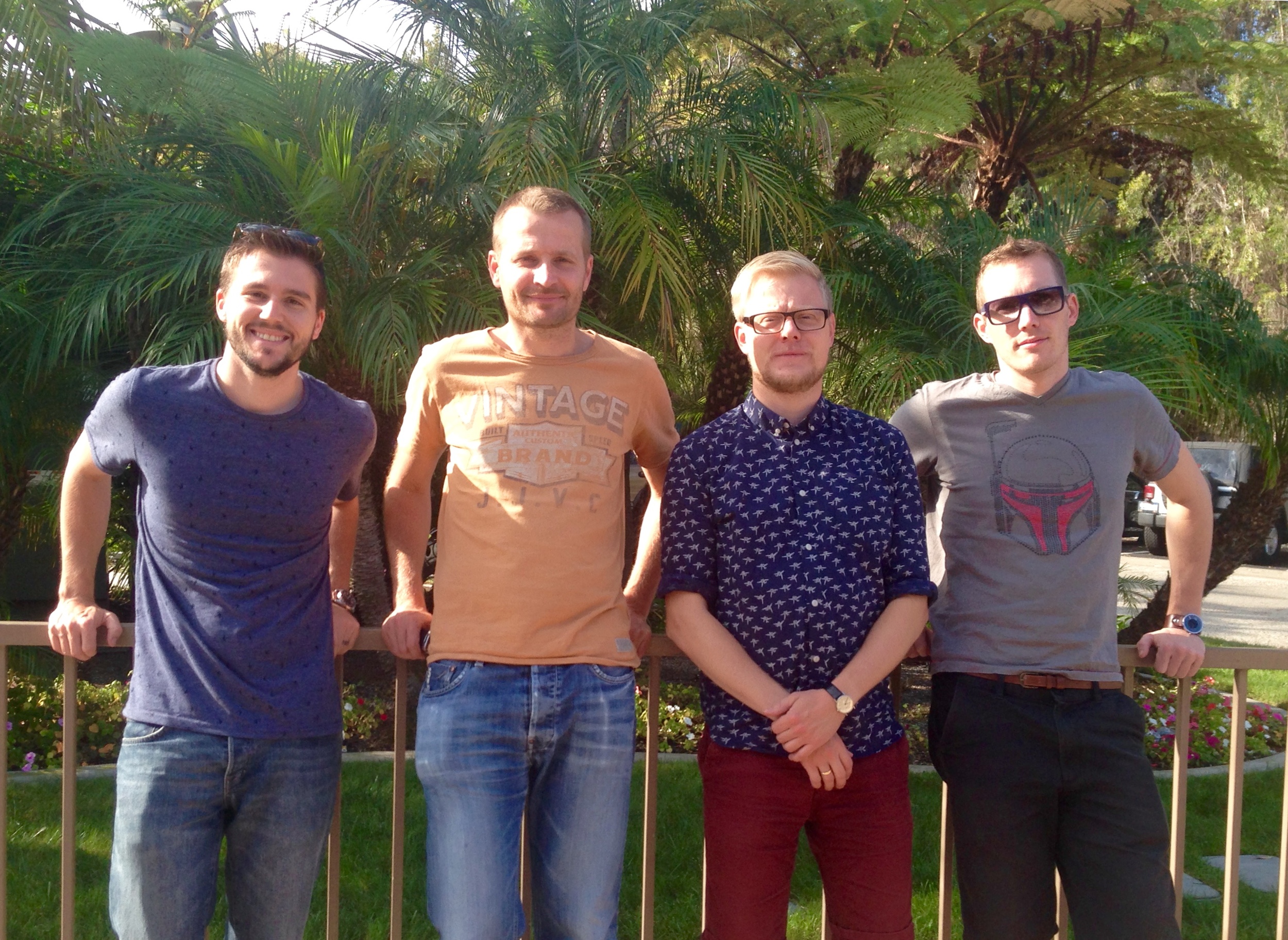The Overgaard lab just returned to Aarhus after an excellent trip to San Diego for the 2014 American Physiological Society Intersociety Meeting: Comparative Approaches to Grand Challenges in Physiology. Anders Findsen (second from the right) won a poster prize, and I was runner up in the Scholander competition for best oral presentation!
Check out two new manuscripts out of our lab that are currently in press! The first, at The Journal of Experimental Biology (here) is a look at what really causes muscle resting potential to depolarize with chilling in the migratory locust. The second paper in Functional Ecology (here), is a test of what cold tolerance traits best predict the current distributions of Drosophila species.
Need to extract hemolymph from Drosophila or other small insects? You're in luck!
Bryon Hughson and I have very recently had a manuscript accepted to the Journal of Insect Physiology where we demonstrate how to extract extracellular fluid from adult Drosophila!
Check out the manuscript here.
This week I received the excellent news that my application for funding from the Carlsberg foundation was approved! These funds will be used to buy some necessary electrophysiology equipment for the Overgaard lab, such as an A/D converter and an air table. Funding = good. Funding tied to beer = great! Does this mean I have to drink more Carlsberg?
On Friday I was awarded the J.D. Detwiler Award from the Department of Biology at the University of Western Ontario. This award is given to a graduating MSc or PhD student who demonstrated excellence in their thesis and defence. I'm honoured to have received the award, and it's humbling to read about the life of such an impressive scientist.
John D. Detwiler was an accomplished educator and entomologist, which makes receiving this award all the more meaningful. He was an elementary and high school teacher before being hired as an instructor at Cornell University (1918-1921). In 1921, Dr. Detwiler arrived at Western as an Assistant Professor of Zoology before becoming an Associate Professor in 1925. He served as head of the Department of Zoology and Applied Biology from 1946-1949. In addition to his service at the University, Dr. Detwiler was an investigator for the Biological Board of Canada, the Department of Mines and Fisheries, and the Department of Game and Fisheries.
Dr. Detwiler's career in research and conservation is something to be admired. He wrote on topics as varied as the endocrine control of insect moulting, biological pest control (both in agriculture and in your own backyard), predator and prey coevolution, and the importance of zoological education programs. I can only hope that my own career is a fraction as interesting as that of Dr. Detwiler.
A detailed archive of the life and career of Dr. J.D. Detwiler can be accessed at the University of Waterloo Library here.
This week I arrived in Aarhus with my beautiful wife, Christine, my two month old daughter, Hannah, and a big ol' dog named Sam. Here I will begin work on muscle excitability at low temperatures in locusts and flies with Johannes Overgaard.
The zoophysiology faculty at Aarhus is highly respected among comparative physiologists. I am delighted to be joining such a great group. Also, this city is gorgeous!

